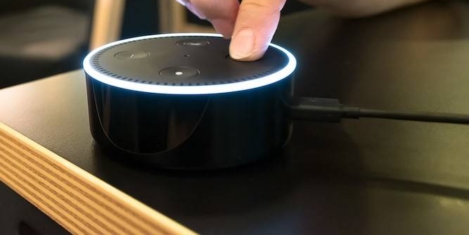April 28, 2017
BIFM issues new guidance for FMs on managing the transition to agile working 0
 New guidance to help facilities managers manage the transition to agile working within their organisation has just been published by the British Institute of Facilities Management (BIFM). The Agile Working Change Management Guidance Note is aimed at FMs working at a senior and/or operational level and covers the benefits of agile working and how to successfully plan and implement an integrated approach to deliver sustainable change in working behaviour. Agile working describes a range of work settings that allow people and organisations to make new choices about when, where and how they work. It is underpinned by mobile technology and applies to people working both in and away from the traditional office, such as at home, on the road or remotely in other locations. BIFM’s research and information manager Peter Brogan said: “As an Institute, we recognise the importance of the workplace agenda for FMs and this newly commissioned Guidance Note aims to address the current lack of knowledge around some of the emerging workplace practices.”
New guidance to help facilities managers manage the transition to agile working within their organisation has just been published by the British Institute of Facilities Management (BIFM). The Agile Working Change Management Guidance Note is aimed at FMs working at a senior and/or operational level and covers the benefits of agile working and how to successfully plan and implement an integrated approach to deliver sustainable change in working behaviour. Agile working describes a range of work settings that allow people and organisations to make new choices about when, where and how they work. It is underpinned by mobile technology and applies to people working both in and away from the traditional office, such as at home, on the road or remotely in other locations. BIFM’s research and information manager Peter Brogan said: “As an Institute, we recognise the importance of the workplace agenda for FMs and this newly commissioned Guidance Note aims to address the current lack of knowledge around some of the emerging workplace practices.”










 More than six in ten workers value happiness at work over salary and even those more motivated by salary agree that a setting that allows friendships to flourish could provide invaluable benefits for businesses, a new survey suggests. The research by Wildgoose found that 57 percent of respondents thought having a best friend in the office made their time at work more enjoyable, almost a third were more productive and over one in five said it boosted their creativity. The survey also highlighted the differences in attitudes across various groups and demographics. Women were far more likely to prioritise happiness, with eight in ten placing it above salary, compared to just 55 percent of males. The job level of an employee also played a significant role. For 85 percent of managers, salary was deemed more important, while 70 percent of entry-level, interns, and executives chose happiness.
More than six in ten workers value happiness at work over salary and even those more motivated by salary agree that a setting that allows friendships to flourish could provide invaluable benefits for businesses, a new survey suggests. The research by Wildgoose found that 57 percent of respondents thought having a best friend in the office made their time at work more enjoyable, almost a third were more productive and over one in five said it boosted their creativity. The survey also highlighted the differences in attitudes across various groups and demographics. Women were far more likely to prioritise happiness, with eight in ten placing it above salary, compared to just 55 percent of males. The job level of an employee also played a significant role. For 85 percent of managers, salary was deemed more important, while 70 percent of entry-level, interns, and executives chose happiness.
 A majority of workers (65 percent) now feel comfortable requesting to work from home, while a third (33 percent) of UK employees would decline a job offer if they weren’t able to work flexibly. This is according to a new study from Maintel which claims that today’s multi-generational workforce prefers flexible working to traditional office hours and location; with flexible work policies perceived as an important workplace benefit. Nearly three quarters (73 percent) of respondents say the company they work for has good flexible work policies in place, 64 percent of remote workers don’t feel micromanaged, and 58 percent would take the opportunity to spend even less time in an office, if it were available. Well over half (60 percent) of respondents believe technology can replace in-person interaction in the workplace. Yet there remain challenges with flexible work, including indifference regarding the security of company data (66 percent) and distractions at home (31 percent).
A majority of workers (65 percent) now feel comfortable requesting to work from home, while a third (33 percent) of UK employees would decline a job offer if they weren’t able to work flexibly. This is according to a new study from Maintel which claims that today’s multi-generational workforce prefers flexible working to traditional office hours and location; with flexible work policies perceived as an important workplace benefit. Nearly three quarters (73 percent) of respondents say the company they work for has good flexible work policies in place, 64 percent of remote workers don’t feel micromanaged, and 58 percent would take the opportunity to spend even less time in an office, if it were available. Well over half (60 percent) of respondents believe technology can replace in-person interaction in the workplace. Yet there remain challenges with flexible work, including indifference regarding the security of company data (66 percent) and distractions at home (31 percent).























